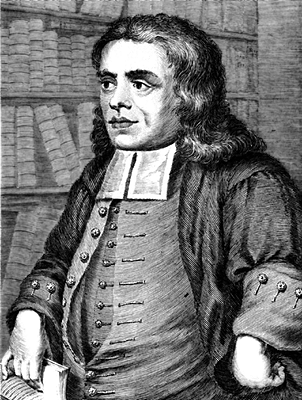 |
 |
|||
|
|
Thomas was born at Littlefield Green in White Waltham, a son of the parish clerk, George Hearne, and his wife, Edith, daughter of Thomas Wise of adjoining Shottesbrooke. He gained his early education from his father but, having shown a great aptitude for academic study, he was taken under the wing of the local lord of the manor, the nonjurer Francis Cherry, who resided at Shottesbrooke Park. Cherry sent him to school in Bray, with the particular hope that he would learn the Latin tongue, and brought him to live at Shottesbrooke, where he was assisted in his education by the theologian, Henry Dodwell. In 1696, Hearne matriculated at St. Edmund Hall, Oxford where he came to the attention of Dr John Mill, the Hallís principal. Mill employed him in many ways, including the comparison of manuscripts. Having gained a BA in 1699, Hearne was made Assistant Keeper at the Bodleian Library. He worked on their catalogue and, by 1712, he was appointed Second Keeper. Three years later, Hearne was elected Architypographus and Esquire Bedell in Civil Law at the University. However, objections were raised to his holding both this office and that of Second Librarian, so he resigned within the year. Like his patron, he was a nonjuror and thus refused to take the oaths of allegiance to King George I. This resulted in his being deprived of the librarianship in early 1716. Hearne continued to reside in Oxford, occupying himself in editing the English chroniclers, a task he had begun some years before. The most important of his works were:
Rather than take the oaths, he refused several important further academic positions, including the Bodleian Librarianship and the Camden Professorship of Ancient History. He died on the 10th June 1735.
|
|||
| © Nash Ford Publishing 2004. All Rights Reserved. | ||||



 Thomas
Hearne (1678-1735)
Thomas
Hearne (1678-1735)